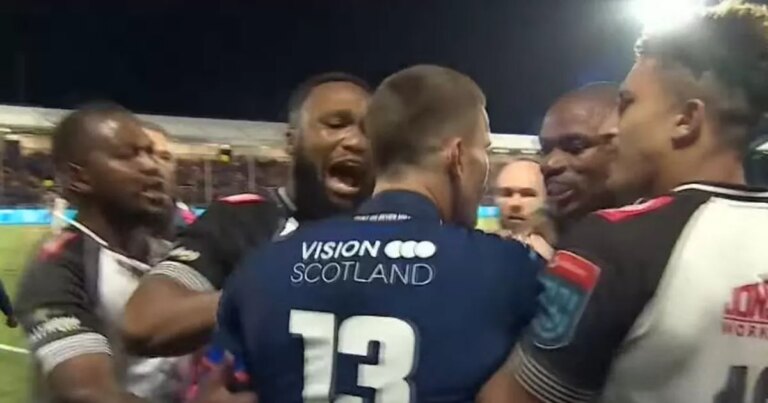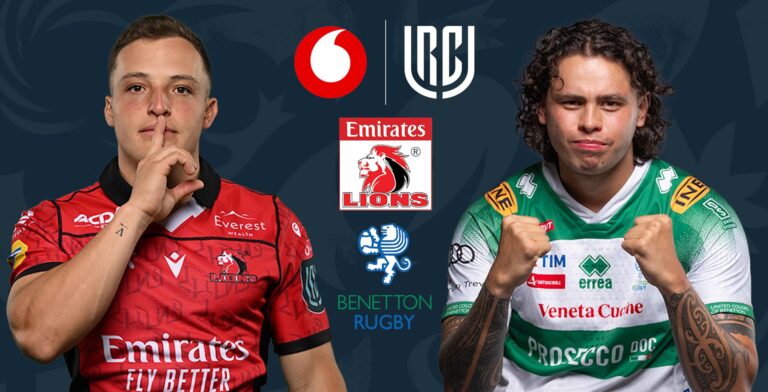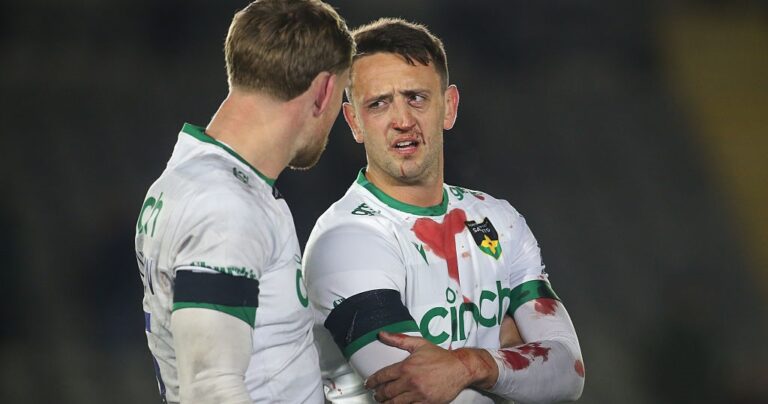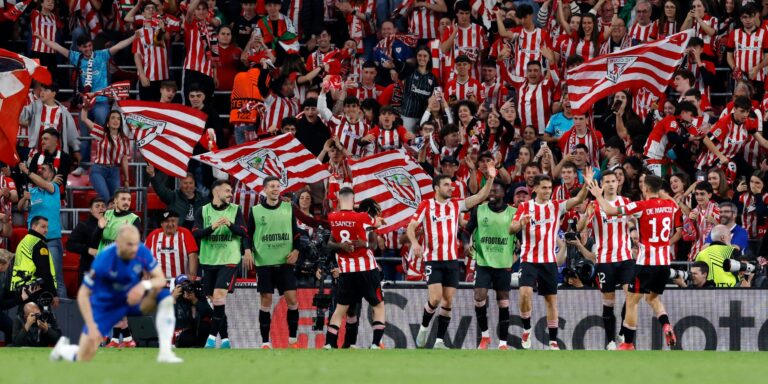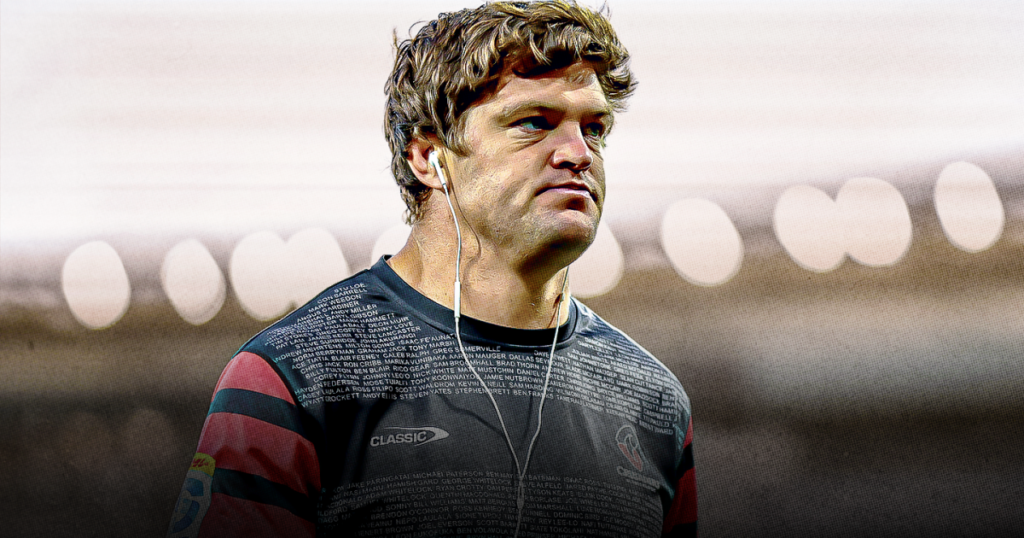
It would be unfair, and probably untrue, to say Scott Robertson made a mistake in choosing Scott Barrett to be his All Blacks captain in 2024.
But it wouldn’t be unfair to suggest the coach should take some time during these next few weeks of Super Rugby to consider making a change in 2025.
Barrett has been headline news for the past week or so because several former All Blacks went public about what everyone else could see – the 31-year-old lock has not been playing well. He has been quiet by his own high standards and against Moana Pasifika – a game in which the Crusaders pack was blown away – Barrett looked lost, while Ardie Savea, the man many felt should be the national team skipper, was inspirational and quite brilliant. It was impossible to ignore the fact Savea looked every inch an All Blacks captain and Barrett didn’t.
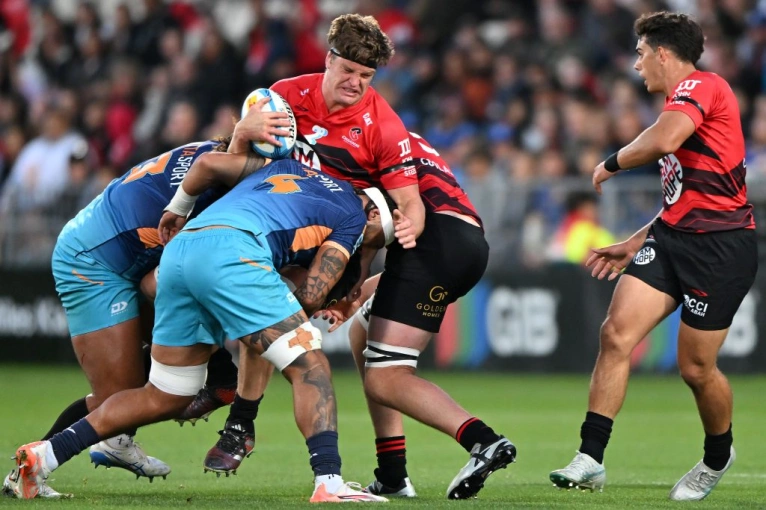
Barrett looked like he had other things on his mind, that he was being weighed down by a heavy mental load – and he was a shadow of the player he’d been in 2023 when he was arguably the best lock in the world game.
The following week Barrett was rested when the Crusaders travelled to Fiji. That led to former All Black Jeff Wilson saying on Sky TV’s The Breakdown: “I’m not sure where Scott Barrett’s form is as a player, I’m a little bit concerned. He didn’t go to Fiji, he’s the All Black captain and I know what he’s capable of as a player.
“He’s been slow to start this year, I’m not saying he’s not going to be in the All Blacks. Just for his confidence and the impact he can have on the group as one of the players that owns his spot and can go out there and lead the rest of the players, he’s going to need some real support this year.”
This was an irregular scenario – high-profile former All Blacks quizzing the form of the incumbent All Blacks captain. New Zealand is typically bound by an unwritten code the captain is treated with some reverence by those who have previously worn the jersey.
His former team-mate, Justin Marshall, even suggested shifting Barrett to blindside flanker to invigorate him.
“If he was to go off the side of the scrum because he can distribute, he can play second receiver,” Marshall said.
“This is for the Crusaders not for the All Blacks. It’s just to find his mojo again. So you can carry hard at blindside. But equally, you can balance your game with ability.”
This was an irregular scenario – high-profile former All Blacks quizzing the form of the incumbent All Blacks captain. New Zealand is typically bound by an unwritten code the captain is treated with some reverence by those who have previously worn the jersey. This felt a bit direct, harsh even and against the code. But Barrett, interestingly, didn’t disagree with any of it.
“It’s the media’s job to create interest and they’ve got opinions on performances,” he said.
“Possibly those opinions have been not far off the mark. I hold myself to a high standard and potentially some of my performances earlier in the year haven’t been where I’d like them to be.
“I’m not too sure what it is. I don’t want to give too much away. I know the things I’m working on.”

It’s reasonable to assume, given his pedigree, Barrett will bounce back in the coming weeks and find better form.
He’s never really struggled like this before and given his dedication to training, his desire to be the best lock in the country and his love of the Crusaders, he’ll likely be smashing rucks and dominating collisions in no time.
But there is potentially an alternative scenario to consider, that what is weighing Barrett down is the burden of the All Blacks captaincy.
It’s not beyond the realms of possibility he’s not sure whether he wants the job, and he’s feeling an element of angst about another season at the helm. It’s an unbelievably tough role – one even the greatest leader the game has known, Richie McCaw, found overwhelming at first. And it’s a job Barrett may now be thinking is not quite right for him.
It took Richie McCaw three years to settle into the role and Sean Fitzpatrick before him was another who battled to believe in himself and his right to lead the team.
He was a successful and much-liked captain at the Crusaders but leading the franchise is not like leading the All Blacks. The Crusaders are a well-oiled machine where players rarely step out of line and there is rarely off-field scandal.
The commercial scale and media interest in Super Rugby is also comparatively small, and Barrett’s job as captain was to essentially be the chief decision maker and talismanic figure on the field.
That bit he loved and was particularly good at. When he’s at his best he’s a world class talent – massively effective in the collision zones and athletic enough to contribute all over the field.
The All Blacks job, however, comes with so many other demands than just being an inspirational leader and calm thinker on the field.
It comes with demanding media and commercial obligations. Less appreciated is the relentless pressure of being the person who links the playing group with the coaches, and whose name is constantly in the media and public narrative as the team’s figurehead, carrying the can for performances that don’t meet expectation.
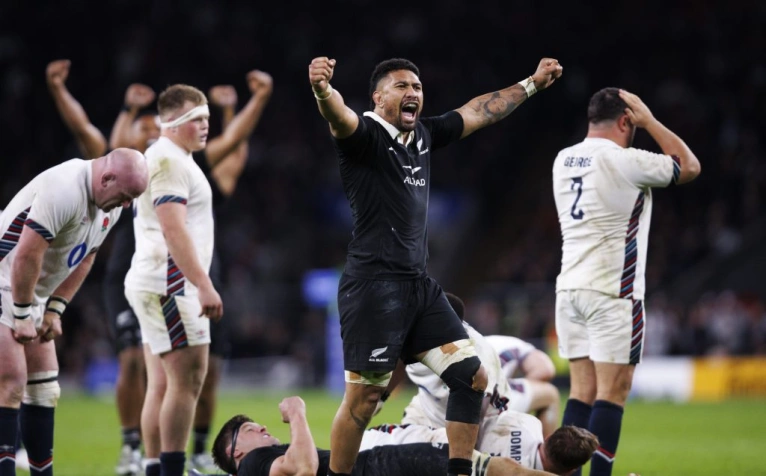
Barrett, when asked early last year by Robertson whether he would be the captain, took a few weeks to think about it, and perhaps that was just sensible due diligence, or maybe it was indicative of someone who genuinely wasn’t sure about whether they were ready to do the role.
Being anxious about leading the All Blacks is normal. History is full of stories of new captains being gripped with feelings of anxiety and unworthiness.
It took McCaw three years to settle into the role and Sean Fitzpatrick before him was another who battled to believe in himself and his right to lead the team. But those two built their confidence by building their form. It was their performances on the field that won them the respect of their peers and enabled them to feel more comfortable in all the other aspects of the role.
And this is what may be playing on Barrett’s mind. He didn’t play particularly well last season either – partly because he was ravaged by injury.
Partly, though, it may also have been the pressure of captaining New Zealand. There’s a strong possibility he was overwhelmed by the enormity of the role, and now he knows what it entails, maybe he’s not sure whether he wants to double down and commit to being the best captain he can be, or have the burden removed so he can focus on just getting back to being a world class player.
It would be a tough call for any player to rescind the All Blacks captaincy but it can’t be ruled out that in this case, it may be the right one.
It would be a tough call for any player to rescind the All Blacks captaincy but it can’t be ruled out that in this case, it may be the right one.
What might be easier would be to have the decision made for him. It would be a big call for Robertson, who worked with Barrett for many years at the Crusaders, but it may ultimately be the right one.
If Barrett can’t get back to being the best version of himself, why not see if a stint without the captaincy works? After all, it did the trick for Sam Cane in 2021 when he joined the end-of-year-tour late because of injury and the All Blacks opted to continue with Savea as captain for the remainder of the trip. Cane settled in quickly, played some good rugby and showed there is value in letting players who are struggling for form or returning from injury do so without the yoke of captaincy.
And what would facilitate this decision being made, is the continued presence of Savea. He stepped in to lead the team when Cane was injured in 2021 and many times after, and he could step in again, either temporarily or permanently for Barrett.
Captaincy sits well on Savea – certainly more lightly than it has so far on Barrett – and Robertson shouldn’t fear making a change, even if it is only temporary.
